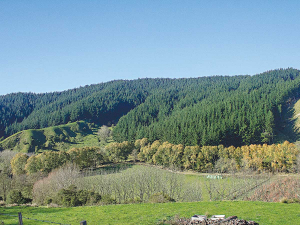New Zealand shows climate gains, but urgent action needed
The Climate Change Commission’s 2025 emissions reduction monitoring report reveals steady progress on the reduction of New Zealand’s climate pollution.
 Dave Read says the Climate Change Commission report heavily relies on forest planting to offset emissions.
Dave Read says the Climate Change Commission report heavily relies on forest planting to offset emissions.
OPINION: Dear Ministers Nash and Shaw,
The Climate Change Commission (CCC) has presented a report with a lot of rhetoric about the importance of reducing gross emissions.
However, it heavily relies on forest planting to offset emissions, while we delay tackling transport, yet again. There is no mechanism suggested to limit the surge in exotic afforestation unleashed by higher carbon prices under the ETS. The Government is very happy at the unexpected low cost of the actions proposed by the CCC.
Late last year, Te Uru Rakau released the report Economic Impacts of Forestry in NZ by Price Waterhouse Cooper (PwC). This report maintains that forestry is a better land use than sheep and beef farming on our hill pastures, producing more direct employment and a better economic outcome for NZ. This report is deeply flawed.
The acting director general of Te Uru Rakau has refused to withdraw this report, so I have taken a case to the Ombudsman.
Here is a summary. Points 1 & 2 together mean that the reality is that sheep and beef farming generates more direct employment per 1,000ha, not less.
In brief:
I am happy to supply the documents that support my assertions or discuss this issue further.
Dave Read
RD 3
Wairoa 4193
Legal controls on the movement of fruits and vegetables are now in place in Auckland’s Mt Roskill suburb, says Biosecurity New Zealand Commissioner North Mike Inglis.
Arable growers worried that some weeds in their crops may have developed herbicide resistance can now get the suspected plants tested for free.
Fruit growers and exporters are worried following the discovery of a male Queensland fruit fly in Auckland this week.
Dairy prices have jumped in the overnight Global Dairy Trade (GDT) auction, breaking a five-month negative streak.
Alliance Group chief executive Willie Wiese is leaving the company after three years in the role.
A booklet produced in 2025 by the Rotoiti 15 trust, Department of Conservation and Scion – now part of the Bioeconomy Science Institute – aims to help people identify insect pests and diseases.